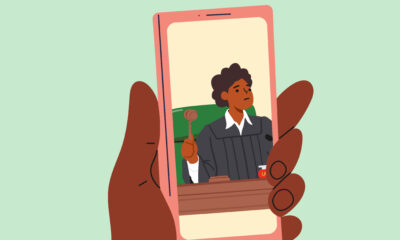Features
Do Your Tweets Truly Reflect Who You Are?
If your tweets are filled with misogyny, insults, abuse, so much anger and bile for other users, isn’t it a glimpse of who you are? Wouldn’t I be justified to keep you at bay?

Perhaps one of the most disingenuous things we say to ourselves is that our social media posts do not reflect our true personality. In people’s bios, you see “I’m here for fun, my tweets are not me” and it sounds really cool. After all, aren’t we all meant to simply have fun on IG or TikTok and keep it moving? Or enjoy a debate with a random stranger and move on? What makes the things we say and how we say them a big deal? However, arguments have shown that our social media presence can present an accurate depiction of who we are in real life, even if we do not want it to be so.
Dr Margeret Hall and Dr Simon Caton once tried to find out how much of people’s personalities can be revealed through their social media presence. “We were looking for the ‘Big 5’: openness to experience, conscientiousness, extraversion, agreeableness and neuroticism. We found that we could predict where a person fell on the scale for each trait with a high level of accuracy. Posts about TV programmes were particularly revealing.” After studying about 500 people on Facebook, they concluded that someone, perhaps a potential employer, can possibly observe your personality through your social media pages.
Perhaps it would be rash to swiftly form an opinion on who a person is through their social media posts. I’d agree that social media is not real life and sometimes, we decide how we sometimes want people to perceive us. People can create fake personalities for themselves online to appease other people. Others may use social media to satisfy their alter egos or embody a part of themselves they wish they could be in the real world – like an introvert being quite extroverted online. Or a shy person being super friendly and popular on a social app. But how much of ourselves can we possibly tuck away before it all comes flooding out, and for how long too? What happens when people observe a certain pattern in the way you write, talk and act over the years? Especially when they are detrimental to a certain social group.
The world of social media often witnesses people apologising for something they said or did years ago, insisting that those posts, videos or tweets do not reflect their true personality and were borne of naivety or comedy. A certain user recently wrote a certain thread, apologising for times he has hurt women on Twitter (now X) through his tweets. He insisted he was young and foolish and the tweets do not reflect his current personality. It was a lie. Between 2013-2023, his tweets were consistent – they were what he called jokes about sexually assaulting women. For 10 years, he had consistently tweeted about abusing women, insisting that if he was in a certain power dynamic where he had to relate with female workers or students, he was going to take advantage of them sexually. But his apology had words like “young and foolish” and “no longer reflects my personality”, but if for 10 years, people identified you as an abuser through your tweets, isn’t that simply who you are?
I am of the school of thought that the way you use social media is a portrayal of who you are and it would not be out of place for people to make assumptions about you based on what you tweet. When I meet someone new offline or online, I check out their tweets to get a glimpse of their thought processes. Social media, particularly Twitter provides a faux sense of anonymity and security that gets people careless and prone to baring their innermost thoughts with little care for how far their posts can travel. Perhaps on other social apps, it will take more effort – make a video, or post a picture with captions – but on Twitter, it is seamless; you simply need to talk without giving it too much thought or effort. So if your tweets are filled with misogyny, insults, abuse, and so much anger and bile for other users, isn’t it a glimpse of who you are? What makes you think I’d want someone like you in my space, online or offline? Why would I wait to meet you physically to truly get to know you? Wouldn’t I be justified to keep you at bay?
We can keep telling ourselves our tweets or social media posts are not who we are, or we can be honest and use them as mirrors, holding them up high to see our reflections.
***






















